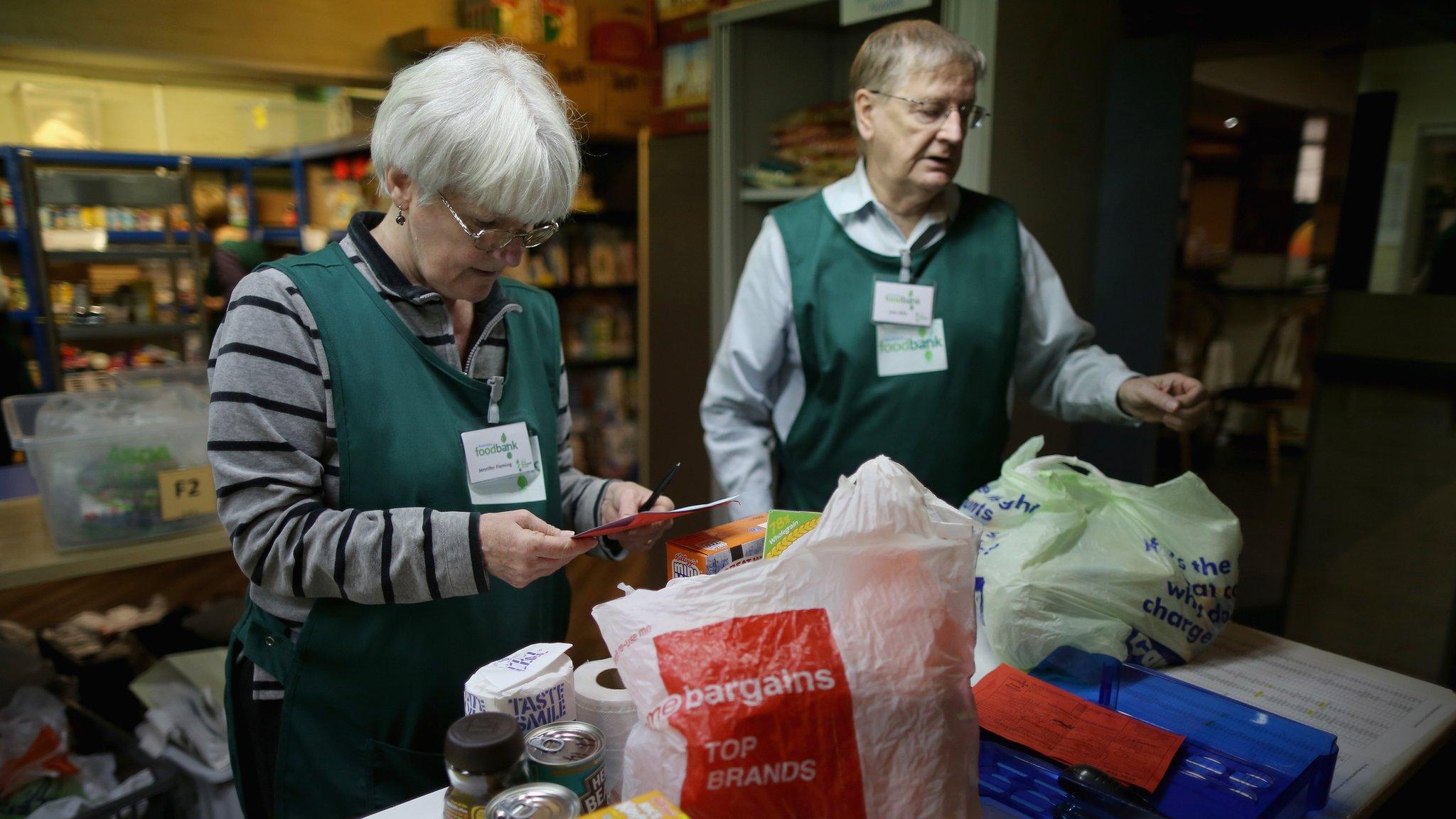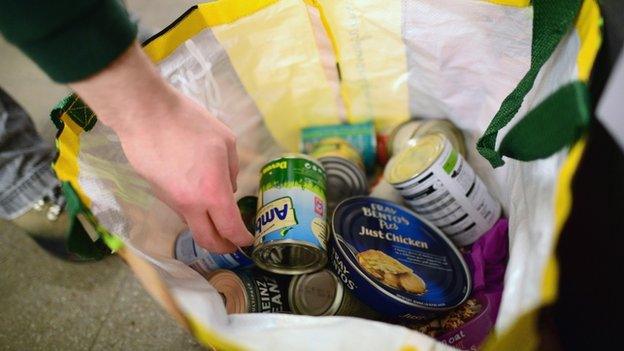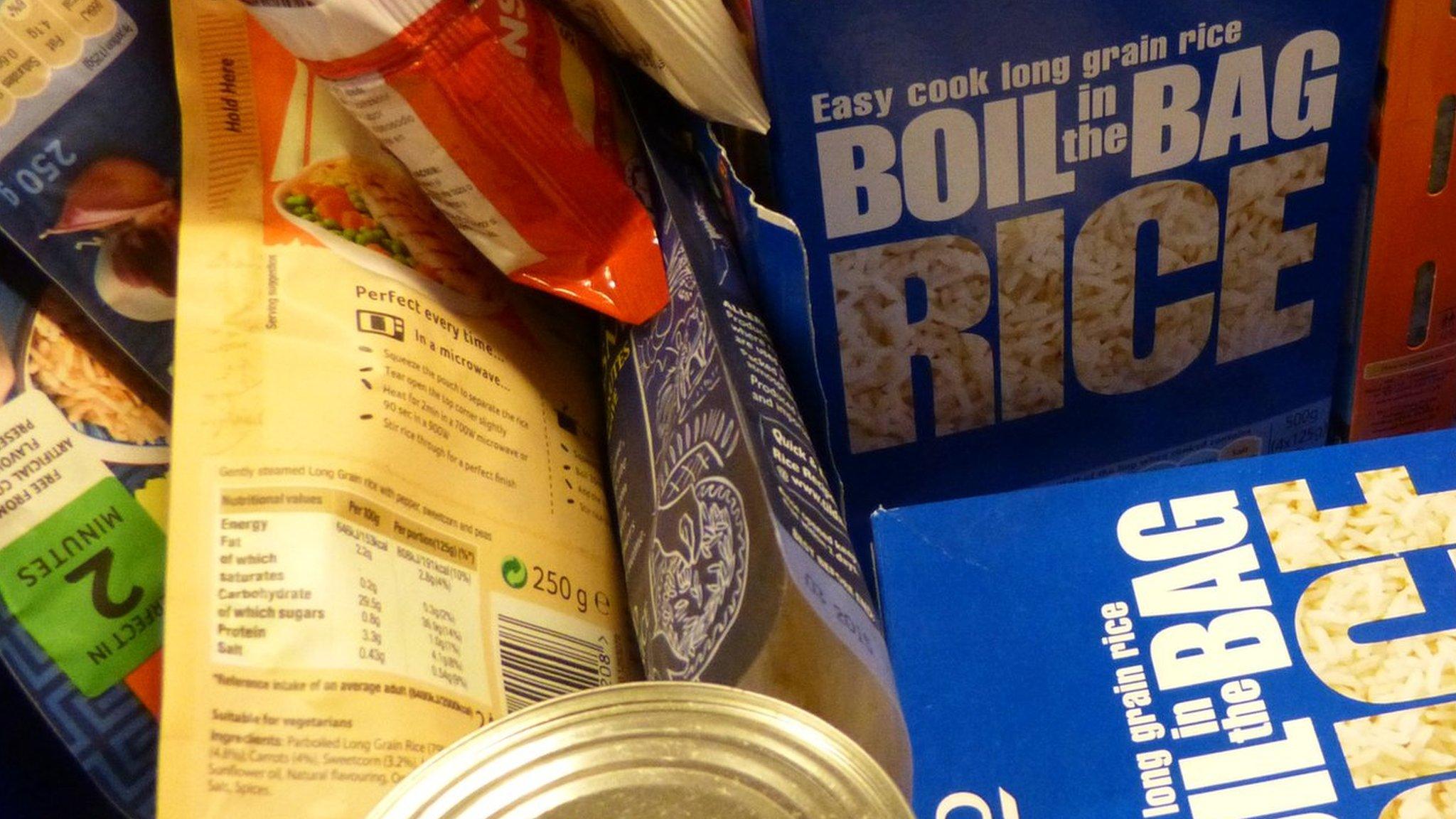Reality Check: Did a million people use food banks?
- Published

The claim: A million people used food banks last year - up from 40,000 in 2010.
Reality Check verdict: More than a million food packages were handed out last year by the Trussell Trust, to a little over half a million people. This is significantly higher than in 2010. We don't know how much of this increase is down to an increase in demand and how much is because of new food banks opening in areas where people were already in need.
In Prime Minister's Questions this week, Jeremy Corbyn said a million people had accessed a food bank last year, compared with 40,000 in 2010.
But that's not quite right. There were more than a million emergency food packages handed out in the last financial year. However, as we've pointed out before, this doesn't mean a million people accessed a food bank.
The main provider of food banks across the UK, the Trussell Trust, external, said it handed out 1.1 million emergency three-day food supplies in 2015-16, 2% more than in the previous financial year.
The network of food banks counts the number of vouchers it collects and one person can receive more than one voucher in the course of a year.
The charity says the average person using its food banks needs two vouchers a year. Based on this, we can estimate that there were a little over half a million unique users last year.
For comparison, 40,898 food packages were handed out in the financial year 2009-10, which seems to be the 40,000 figure to which Mr Corbyn refers.
In his question, Mr Corbyn also said: "This week, an Oxford University study found that there is a direct link between rising levels of benefit sanctions and rising demand for food banks."
The report found, external the Trussell Trust's network of food banks experienced a spike in numbers after 2013, when more than one million sanctions were applied following changes to the administration of Jobseeker's Allowance. Between the financial years 2013-14 and 2014-15, foodbank use rose by 19%.
Researchers found that, on average, for every 10 additional sanctions applied in each quarter of the year, five more adults would be referred to food banks in the area. As sanctioning decreased, food bank use also decreased.
'Unnecessary burdens'
There are no official government figures on food bank use. In 2013 the then Minister for the Environment, Food and Rural Affairs, David Heath, said, external: "The government does not believe it is possible to keep a record of the number of food banks, nor the potential number of people using them or other types of food aid, without placing unnecessary burdens on volunteers trying to help their communities."
While the Trussell Trust runs the country's largest network of food banks and is our best source of data, more people may access food donations on an informal level through other charities, churches and drop-in centres.
This means we can't be sure exactly how many people rely on food aid.
There has also been a sharp rise in the number of food banks, external operating since 2010, so we can't necessarily tell whether all of the rise in food bank use is down to growing demand - some of it might be existing demand that previously went unmet.
Benefits delays
Trussell Trust data shows the most common reason for people having to access food banks was benefits delays (which includes sanctions) in 28% of cases, followed by low income (23%) and benefits changes (14%).
We know this because people using food banks run by the Trussell Trust have to be referred by a professional such as a doctor, social worker or Jobcentre worker, and these professionals have to tick a box stating the reason this service is needed.
The prevalence of people accessing food banks after benefit delays chimes with the University of Oxford's research.
Researcher Dr Rachel Loopstra said: "These findings show clear evidence of sanctions being linked to economic hardship and hunger."
Becoming unemployed, homeless, sick or experiencing domestic abuse were other common reasons for people accessing food banks. Others used the services during children's school holidays to cover the period when they would not be receiving free school meals.

- Published22 April 2015

- Published22 April 2015

- Published16 April 2014
